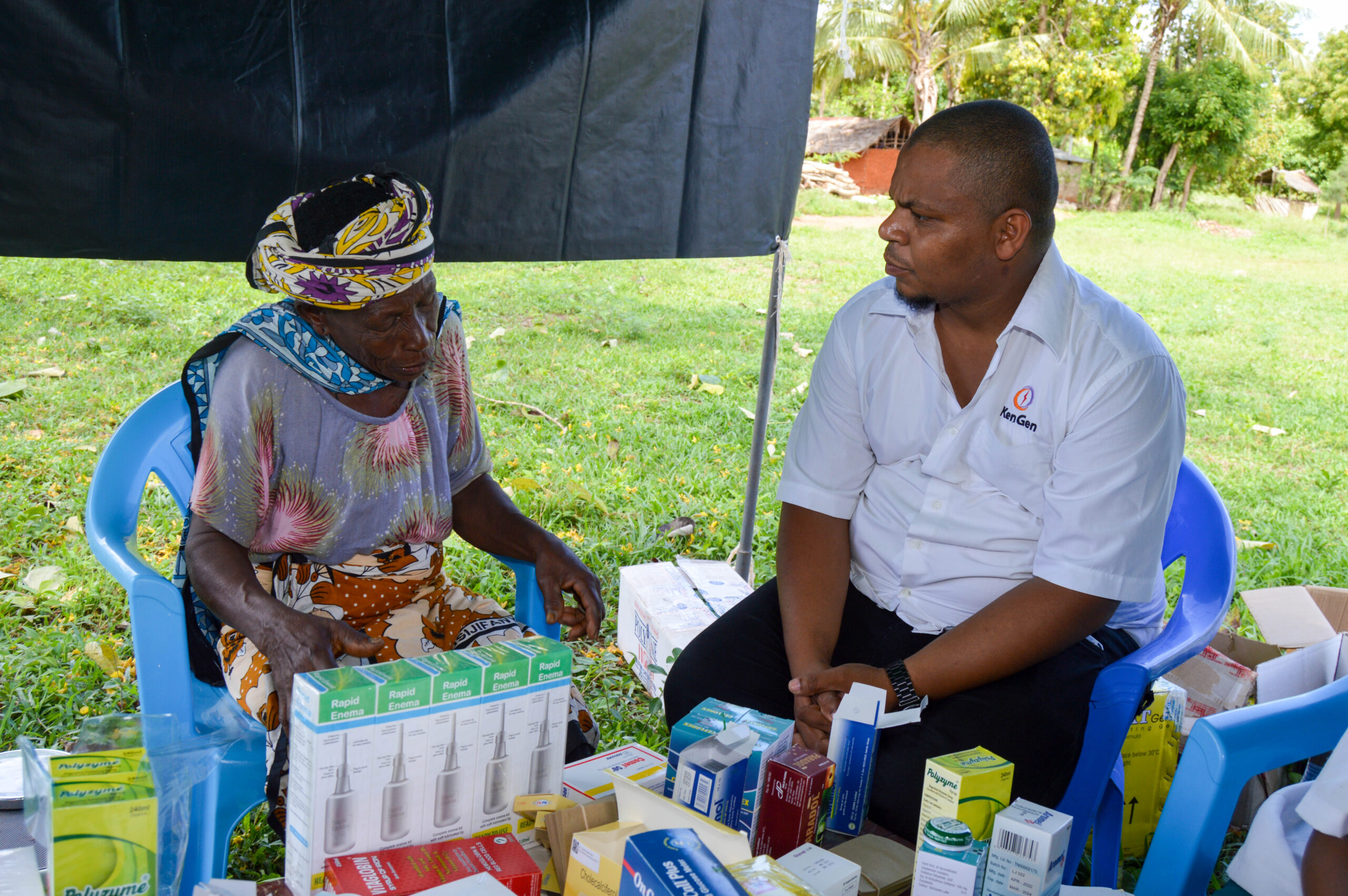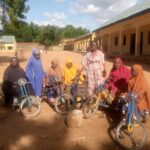By Velma Pamela
The first thing the new arrivals at Kairat Medical Centre receive is breakfast.
“We start by giving them Uji because most of them have travelled a long distance and haven’t had breakfast, so they need the energy,” explained Amina Omar, project manager at a groundbreaking medical scheme hosted by the medical centre.
The other thing the new arrivals tend to notice is the man in the white coat chatting with other patients. Whether at the centre or out on the streets, Dr Bashrahil Mohammed Mafudh is an easily recognisable figure, not only for his white medical coat but also thanks to his easy way with people and the many greetings he receives from passers-by.
Mafudh, the centre’s director and CEO, had always wanted to be a doctor. But running a hospital and a regional health initiative was not something he had planned for, he told a bird story agency reporter who lives in the area.
“The hospital began around the year 2000 as a community hospital, with the primary goal of assisting the vulnerable in the community. But in 2010, they ran into complications because the personnel working in the hospital at the time were not registered medics,” he said.
At the time, Mafudh was employed by the Kenya Medical Research Institute (KEMRI). He decided he needed to step in and assist the struggling hospital. From 2010 until 2013, he would work at KEMRI from 8:00 am to 4:00 pm, then helped with the medical needs of the community at the hospital from 5:00 pm until well into the evening.
“At this point, I realised it was too hectic for me to juggle both. I chose to leave KEMRI and devote my complete attention to the community. I only had one nurse and one pharmacist by then.”
The nudge that Mafudh needed to choose caring for the elderly and vulnerable as his life’s work came from a life-or-death situation.
“There were three elderly people who were living around Kilifi. They were very sick, I remember one had diabetes, the lady had very chronic ulcers, and the last one had hypertension.”
Realising that medication for such conditions was too expensive for them or their children to afford, he decided to treat them for free.
“When they returned home, they began spreading the word about how they were treated for free. One by one, they just kept pouring in, unnoticed, and they all wanted to be treated for free.”
People seeking free assistance swelled from 3 to 50 to 100. He realised he needed a solution. The answer was the Khairat Elderly Medical Scheme (KEMSE).
KEMSE, also known as the Khairat Health Strategy, was established in 2013 by Mafudh. The aim of the project was to reach the elderly and provide medical support in areas deemed “medical deserts.”
“The project started, and, in the process, we also got more doctors. So, from 2013 to 2018, we had almost 150 elderly people in this programme. As we talk, we are having around 600 elderly people registered,” Mafudh said.
Since its inception, the non-profit has assisted over 500 elderly persons in the area with free medical checks. It has also facilitated six successful procedures with the assistance of skilled surgeons.
While the Kairat Medical Centre administers to the general population commercially, the KEMSE are encouraged to visit on Wednesday mornings.
“We place them in groups of twenty and have them come to the hospital every Wednesday,” Omar, who helped pioneer the KEMSE scheme, explained. The scheme provides only to those who are 65 and older.
Mafudh’s Wednesday routine begins early. He holds a regular morning meeting with his staff, where he is kept up to date, while the elderly patients start to arrive and are offered porridge made in the facility’s kitchen and served hot in metal trays.
“Wednesdays are really chaotic. We have the normal patients, the special clinics and the elderly who are all waiting to be treated,” Mafudh explained.
With the hospital being so small, space is put aside to serve the elderly and make the process seamless. Aside from the weekly check-ups, they also hold a Thursday workshop to raise awareness among the elderly about their health.
“With the start of this program, we have managed to reach many people around the community who would have otherwise not come to the hospital,“ explained Dorcas Hassan, one of the clinical nurses assigned to the elderly.
Free medical services are now also being extended to the young patients.
“We have been able to carry out medical camps and free circumcisions for our young generation. In 2018, we had 600 successful circumcisions; in 2020, we had 1200 successful circumcisions,” Mafudh shared.
Georgina Monica’s son is another beneficiary. Born at the centre in March 2022, he suffered from breathing difficulties after being discharged. Monica returned with the infant to Khairat.
“I never had to pay a single shilling when I took my son for a check-up. I was taken aback because I didn’t have any health insurance. After numerous trips, I decided to inquire, and that is when I learned all about the Khairat initiative to give back to the community,” Monica said.
Mafudh’s initiative comes at a time when medical expenses are skyrocketing.
“Generally, healthcare has become expensive. The majority of senior citizens receive inadequate care, and this is a problem that exists in many parts of Kenya. This may be because their children are employed in towns, and most come from low-income settings,” Caroline Ngetsa, the clinical trials laboratory manager at KEMRI-Wellcome Trust Research Programme, said.
“This program has come at a perfect time, considering the economy’s current status. It would be great if we could persuade donors to support initiatives that change older people’s fate. We also need working policies that support the elderly in healthcare,” Ngetsa added.
Mafudh’s work is increasingly being recognised by the community, pushing him to be nominated for a prestigious 2023 Person of the Year Award.
bird story agency






